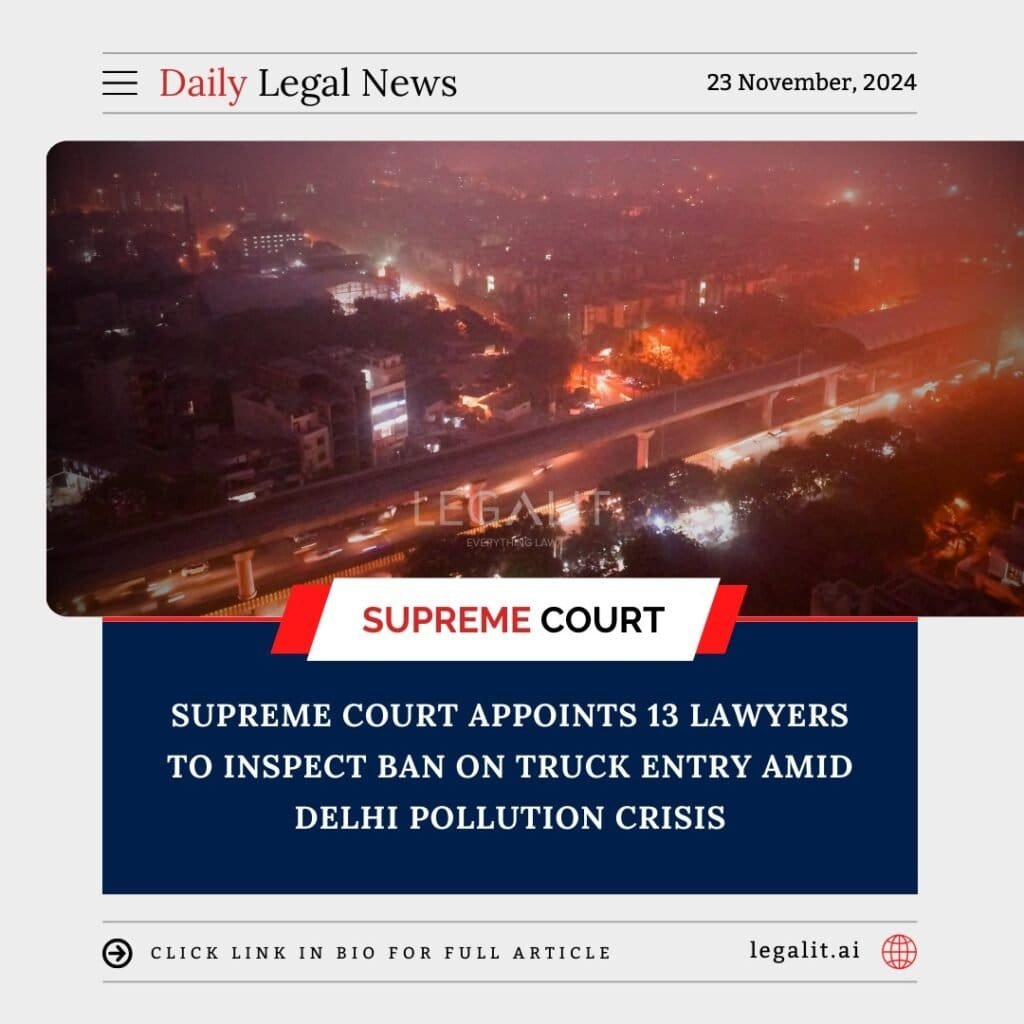
The Supreme Court of India has appointed 13 senior lawyers to oversee the implementation of a ban on the entry of trucks into Delhi as part of efforts to curb the city’s worsening air pollution. This move comes as Delhi grapples with severe air quality, prompting urgent judicial and administrative intervention to address the crisis.
Background:
Delhi’s air pollution levels have repeatedly hit alarming levels, particularly during winter months. Vehicular emissions, industrial activities, and stubble burning are among the major contributors to the city’s air quality deterioration. In response to the hazardous conditions, the Delhi government imposed a ban on the entry of non-essential trucks to reduce emissions. However, questions about the effectiveness and enforcement of this ban led to the Supreme Court’s involvement.
Court’s Rationale:
The Supreme Court highlighted the need for transparency and accountability in implementing pollution control measures. By appointing a team of lawyers to inspect and report on the enforcement of the truck entry ban, the court aims to ensure that the measure is not only implemented on paper but also effectively executed on the ground.
Existing Measures:
Delhi has seen the introduction of several initiatives to combat pollution, including the Graded Response Action Plan (GRAP), restrictions on construction activities, and promoting public transportation. Despite these efforts, the recurring pollution crisis has prompted judicial scrutiny to ensure stricter compliance with anti-pollution directives.
Conclusion:
The Supreme Court’s decision to involve senior lawyers in monitoring the ban on truck entry reflects the judiciary’s proactive stance in tackling Delhi’s air pollution. Their findings are expected to provide insights into the enforcement gaps and recommend measures to strengthen the effectiveness of pollution control policies. This intervention highlights the urgent need for collaborative efforts between the judiciary, government, and public to address the city’s chronic air quality issues.